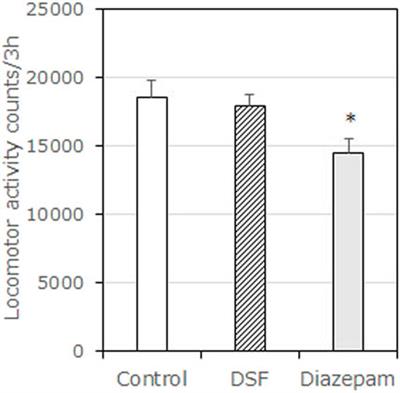- Joined
- May 27, 2020
- Messages
- 32,069
Currently approved and prescribed to deter alcohol use by preventing the metabolization of alcohol, new research into the pharmacokinetics into disulferam shows a significant drop in anxiety in mice comparable to benzodiazepines.

 www.frontiersin.org
www.frontiersin.org
This is on mice, though.
"Disulfiram is an FDA approved drug for the treatment of alcoholism. The drug acts by inhibiting aldehyde dehydrogenase, an enzyme essential to alcohol metabolism. However, a recent study has demonstrated that disulfiram also potently inhibits the cytoplasmic protein FROUNT, a common regulator of chemokine receptor CCR2 and CCR5 signaling. Several studies have reported that chemokine receptors are associated with the regulation of emotional behaviors in rodents, such as anxiety."
An old study from the 80s (on humans) seems to suggest it might improve *or* worsen anxiety in active male alcoholics:

 pubmed.ncbi.nlm.nih.gov
pubmed.ncbi.nlm.nih.gov
interesting... I'm planning on asking my doctor for this when I see them in a few weeks. I think it could benefit me in a large way for anxiety, or, if only to stop drinking.

Frontiers | Disulfiram Produces Potent Anxiolytic-Like Effects Without Benzodiazepine Anxiolytics-Related Adverse Effects in Mice
Disulfiram is an FDA approved drug for the treatment of alcoholism. The drug acts by inhibiting aldehyde dehydrogenase, an enzyme essential to alcohol metabo...
This is on mice, though.
"Disulfiram is an FDA approved drug for the treatment of alcoholism. The drug acts by inhibiting aldehyde dehydrogenase, an enzyme essential to alcohol metabolism. However, a recent study has demonstrated that disulfiram also potently inhibits the cytoplasmic protein FROUNT, a common regulator of chemokine receptor CCR2 and CCR5 signaling. Several studies have reported that chemokine receptors are associated with the regulation of emotional behaviors in rodents, such as anxiety."
An old study from the 80s (on humans) seems to suggest it might improve *or* worsen anxiety in active male alcoholics:

Acute effects of disulfiram on anxiety levels of chronic alcoholics - PubMed
30 male alcoholics, who were anxious by clinical research standards, received either disulfiram (250 mg) or placebo daily for 1 week. There are claims that disulfiram has a sedative effect and that this has some useful antianxiety action, but this had not been tested in a controlled manner...
interesting... I'm planning on asking my doctor for this when I see them in a few weeks. I think it could benefit me in a large way for anxiety, or, if only to stop drinking.
Last edited:


